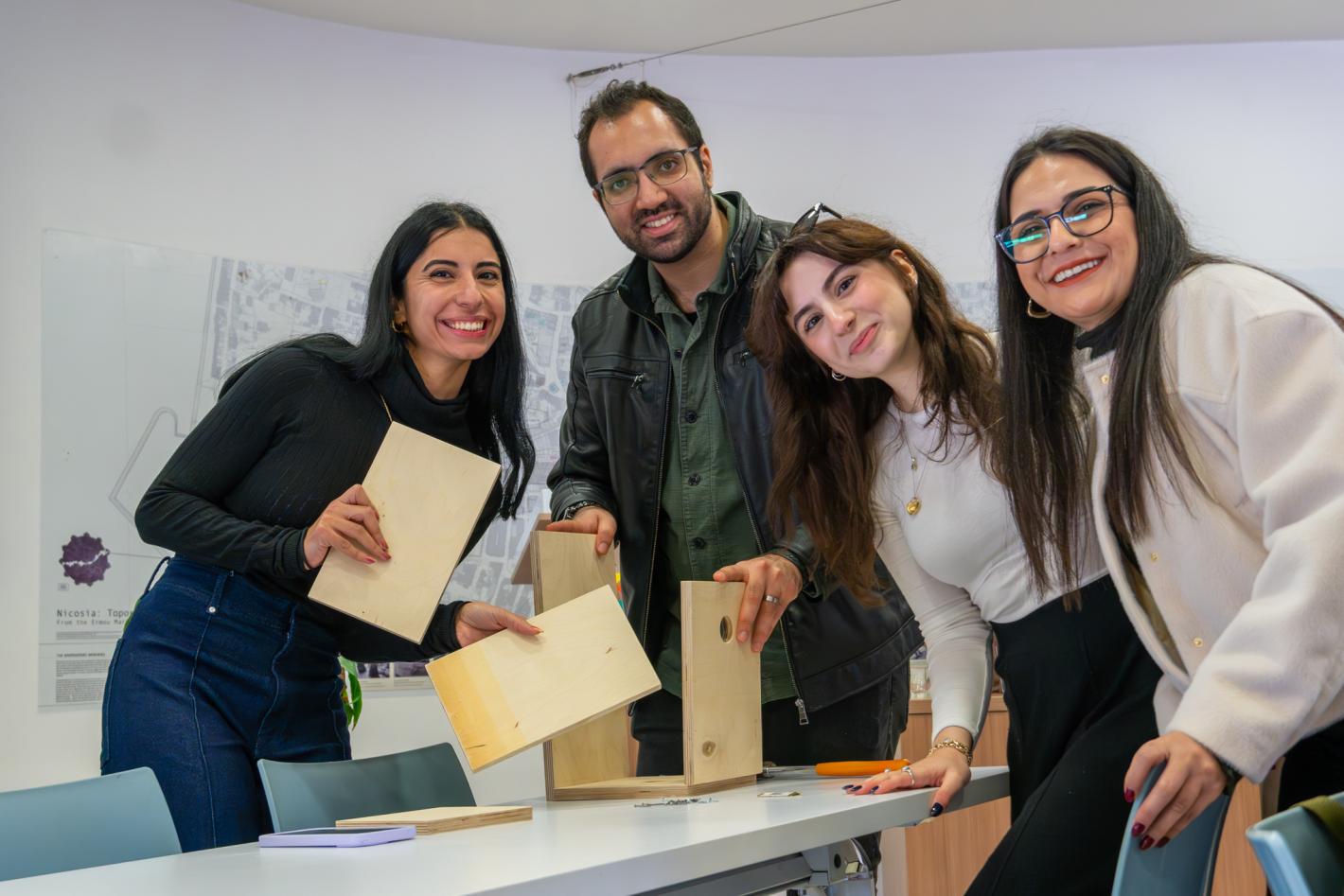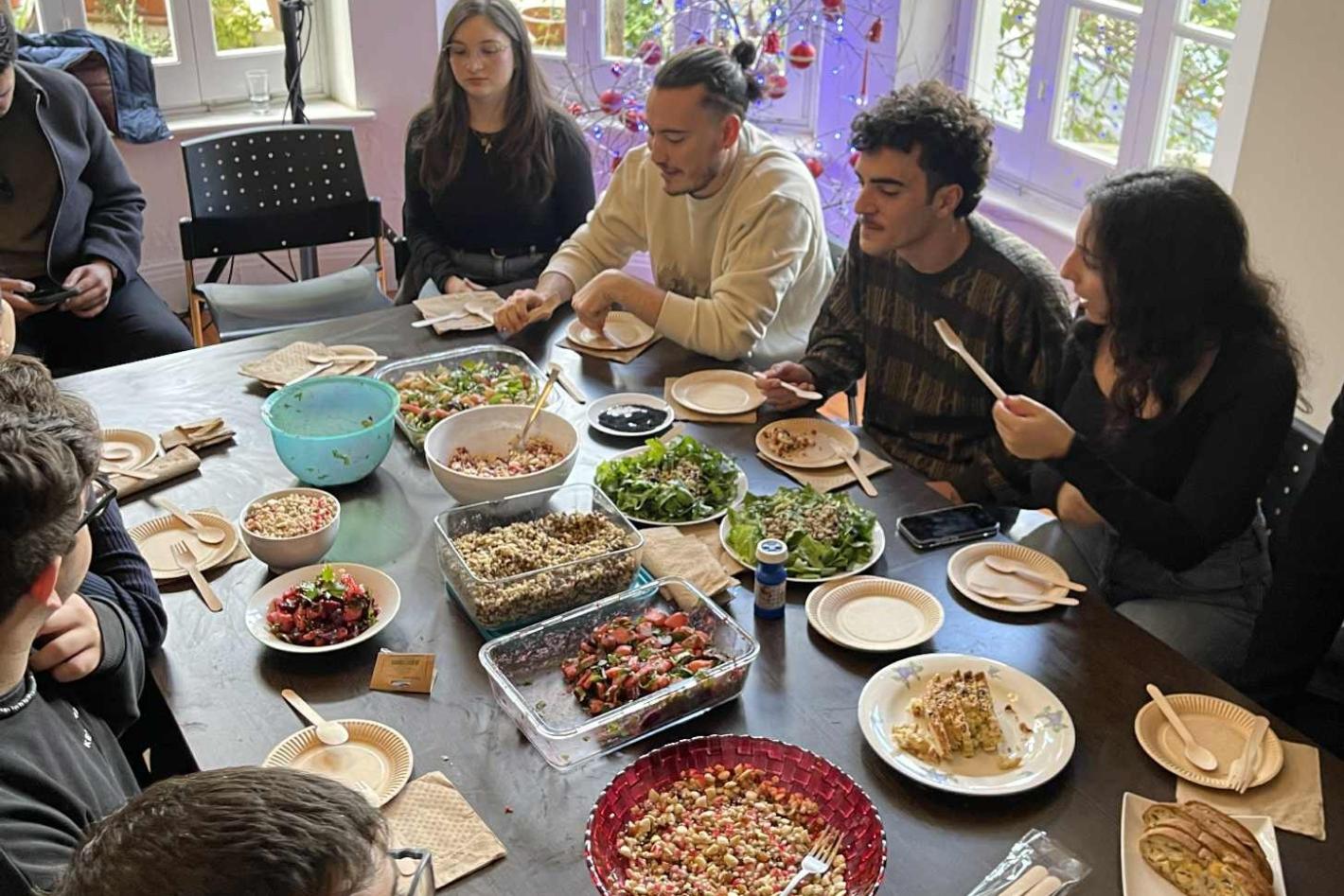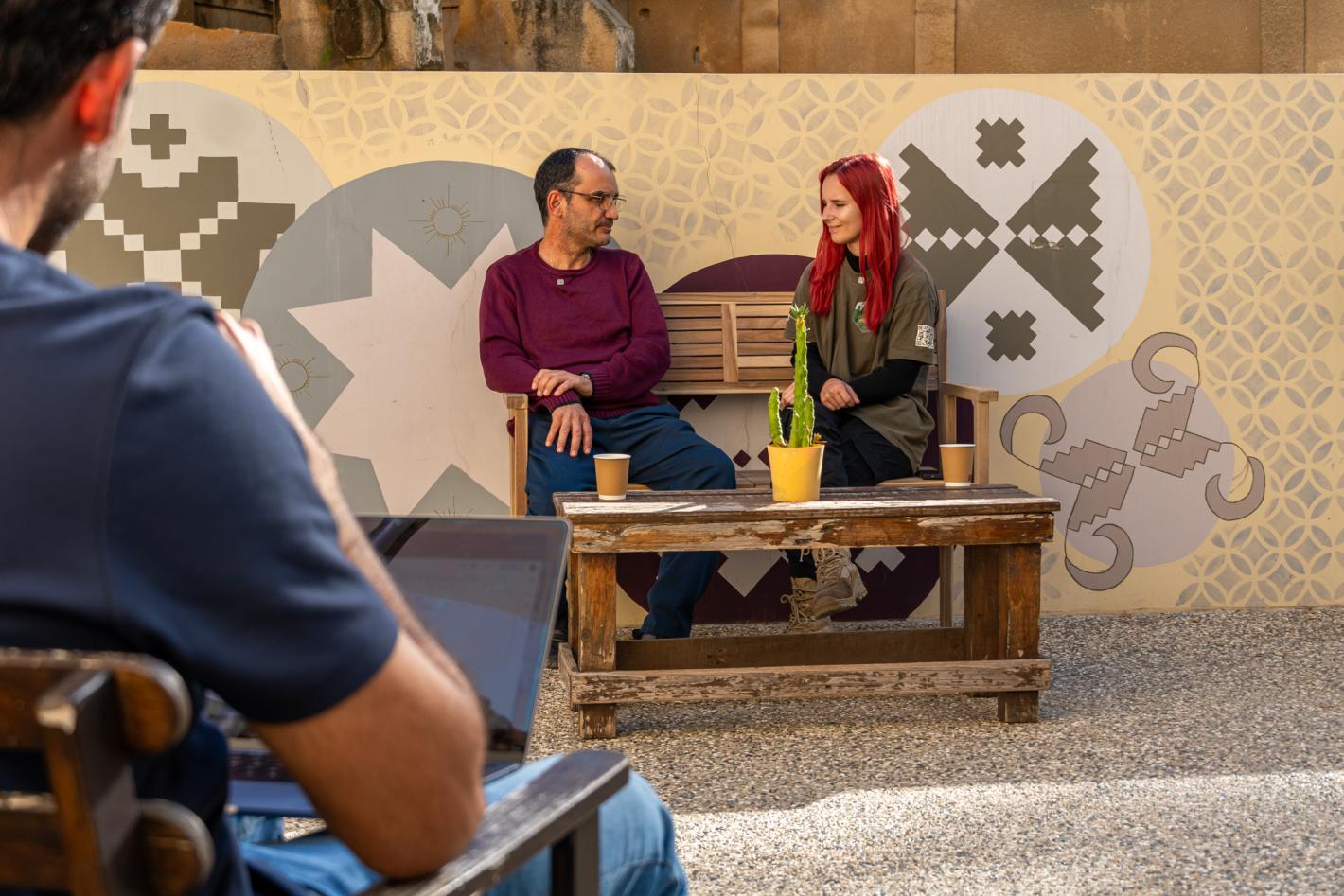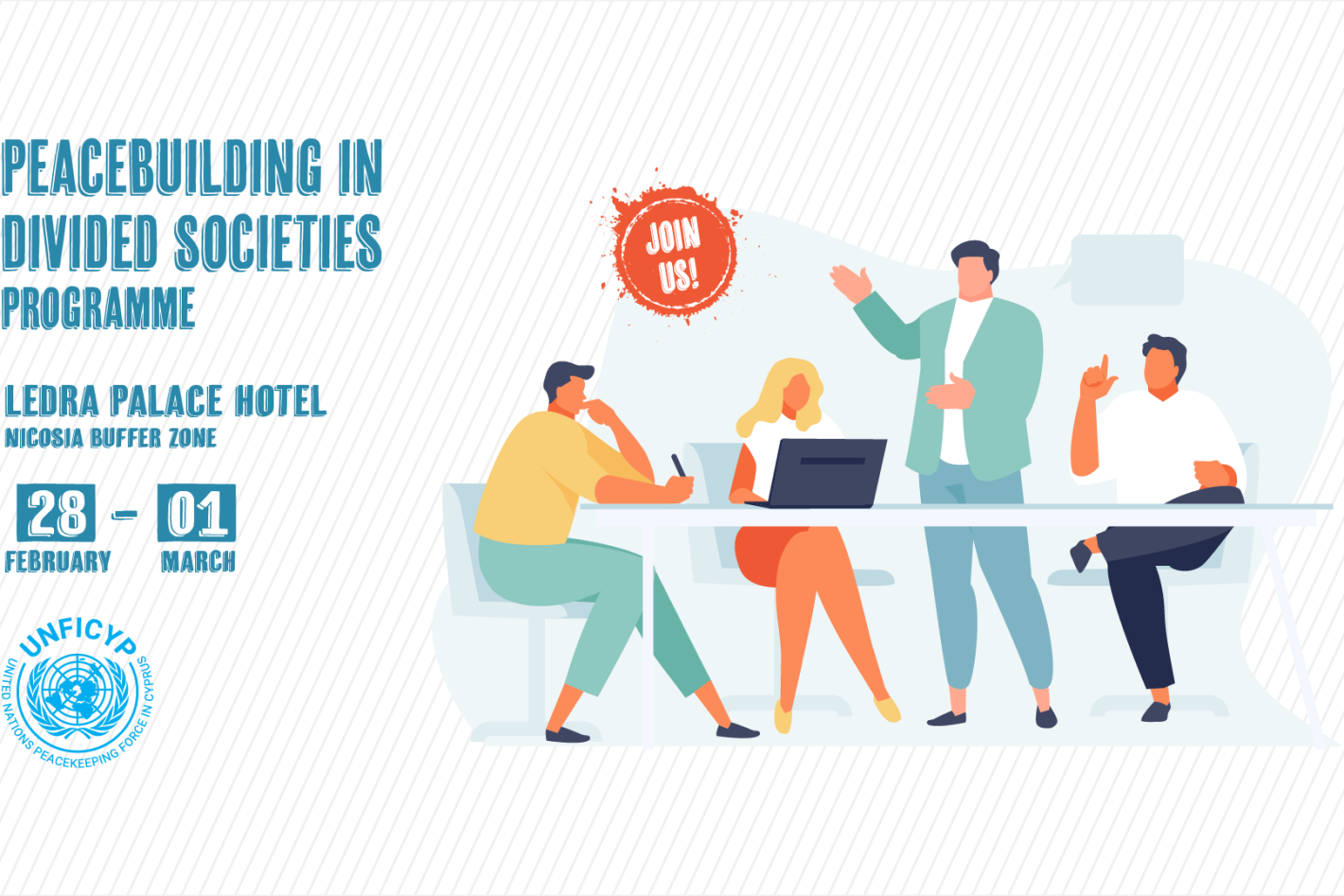In times of COVID-19, the challenges facing peacekeeping missions around the world have multiplied, the health crisis has highlighted the key role of our medical teams in ensuring peacekeepers remain safe and healthy while continuing mission operations across the buffer zone. Health professionals have been heroes during the past year and deserve our praise and thanks for the work they do to tackle the pandemic and keep us all safe. We talked to our Force Medical Officer, Lieutenant Colonel Gábor Kolonics from Hungary, who was deployed with UNFICYP in September 2020. Lieutenant Kolonics shared his experiences during pandemic, UNFICYP’s approach and action plan to cope with the challenges posed by COVID-19.
Can you give a brief overview of UNFICYP’s COVID-19 pandemic action plan?
Our approach from day one has been rooted in science, working closely with the local authorities and ensuring all preventative measures are strictly adhered to by all our peacekeepers. UNFICYP’s pandemic action plan has been designed and regularly updated according to the guidelines and experiences from the World Health Organization, the European Centre for Disease Prevention and Control and following local administrations’ guidelines from both communities on the island.
What major steps have been taken to improve internal communications on the spread of the pandemic from a medical point of view?
Sharing information timely and accurately has been the key to our plan of action. A proper chain of command is followed, and a dedicated COVID-19 response team keeps the chief medical officer appraised of the situation across the mission. In addition, a COVID-19 committee was established to keep the information chain connected from headquarters to all sectors and ensure information arrives in a timely manner. Under the command and leadership directives, the medical team has been vigilant to spread awareness for peacekeepers’ safety and health through our medics across the Mission.
How are the sectors and unit-level commanders dealing with preventive measures to continue routine patrolling and their other duties?
I must say, the commanding officers of units and sectors are playing a key role in pushing the Mission directives through all ranks and through the chain of command and medical teams in the sectors. We have independent medical teams with doctors and staff in all sectors, this has enabled peacekeepers to continue their duties uninterrupted.
I am thankful to my complete medical team and to the support we received from the headquarters supply department, together we them we were able to spread information about preventive measures without compromising the operational capabilities and personal comfort of the peacekeepers.
What specific guidelines does the UN have for meetings and mass gatherings during this COVID-19 period?
The nature of the work performed by office staff at headquarters was mostly shifted to telecommuting. Whereas under operational requirements when physical interaction is necessary, it is done within the COVID-19 guidelines. Wearing of masks, physical distancing, following local administrations preventive measures and UN guidelines is strictly followed. In addition, the concept of “teams within teams” is implemented in the working environment at every level in the sectors and sub-units at UNFICYP.
According to WHO, what routine cleaning and disinfection procedures are appropriate for containing the spread of COVID-19 that UNFICYP is following?
UNFICYP peacekeepers actively follow the mandate and for its enforcement a key part is patrolling the buffer zone. For this purpose, we follow all the basic worldwide preventive and precautionary measures and WHO’s principles like the mandatory use of masks, regular cleaning of hands, disinfection of office areas and vehicles before and after patrolling and physical distancing. This way, the peacekeeping operation is not disturbed, and proper precautions are also catered for.
As a Force Medical Officer, what was the biggest challenge you experienced while serving at UNFICYP?
With COVID-19 we have experienced the situation changing on day-to-day basis, which requires regular information sharing, timely reporting and transparency. UNFICYP’s medical team from headquarters and across the sectors are playing a vital role to meet up with these challenging times. Under the directions of leadership and medical science’s roles and regulations we have tried our best to meet up every challenge and come out with a new learning for the way forward.
What would you like to say about the mental health and associated issues related with the pandemic and how peacekeepers have coped with it in UNFICYP?
I would say mental health is interconnected with the physical status and wellbeing of our personnel. It is not only during the current pandemic, but peacekeepers are recommended to keep themselves fit and mentally vigilant during the whole period they serve in the Mission. We have strongly recommended to peacekeepers, irrespective of the pandemic, to practice sports regularly, eat healthy, and most importantly, to avoid rumours and false information related with COVID-19 and UNFICYP has successfully carried out physical and military exercises during the pandemic.
What are the COVID-19 protocols being followed for the troop rotations?
UNFICYP undergoes regular biannual rotations across all sectors of the contingents and of individual staff officers without any disturbance to the operational requirement. We have been successful to cope with the COVID-19 pandemic environment and successfully carried out our rotation and are ready to go for first one of 2021 in next months. We apply all rules and regulations and in addition, we included a period of two-week quarantine for all new arrivals, a period which includes testing and following all necessary requirements before peacekeepers can start their duties. On the other hand, individual staff rotation continues throughout the year with newer procedures and arrangements from our support department we have been able to continue uninterrupted.
What are the most common myths about COVID-19 that you would dispel for patients?
There are several myths going online, for instance, we hear a lot of fake news related to the intake of vitamins and mineral supplements can cure COVID-19, the prolonged use of masks causes CO2 intoxication or oxygen deficiency, extreme weather can kill the virus, antibiotics prevent or cure COVID-19 and these are just to name a few. I strongly discourage such myths, and during my interactions, I recommend to our peacekeepers not to overburden themselves with over-thinking. We can stay safe by following simple and straight measures under WHO guidelines to stop the spread of the virus.
In your opinion, how to save people’s lives without compromising their livelihoods?
I believe there have been an overabundance of information, both online and offline. We must keep ourselves realistic and positive at the same time. Rationally acting upon the precautionary measures and keeping healthy is what is needed at the time. We all wish for a better and safer 2021.






